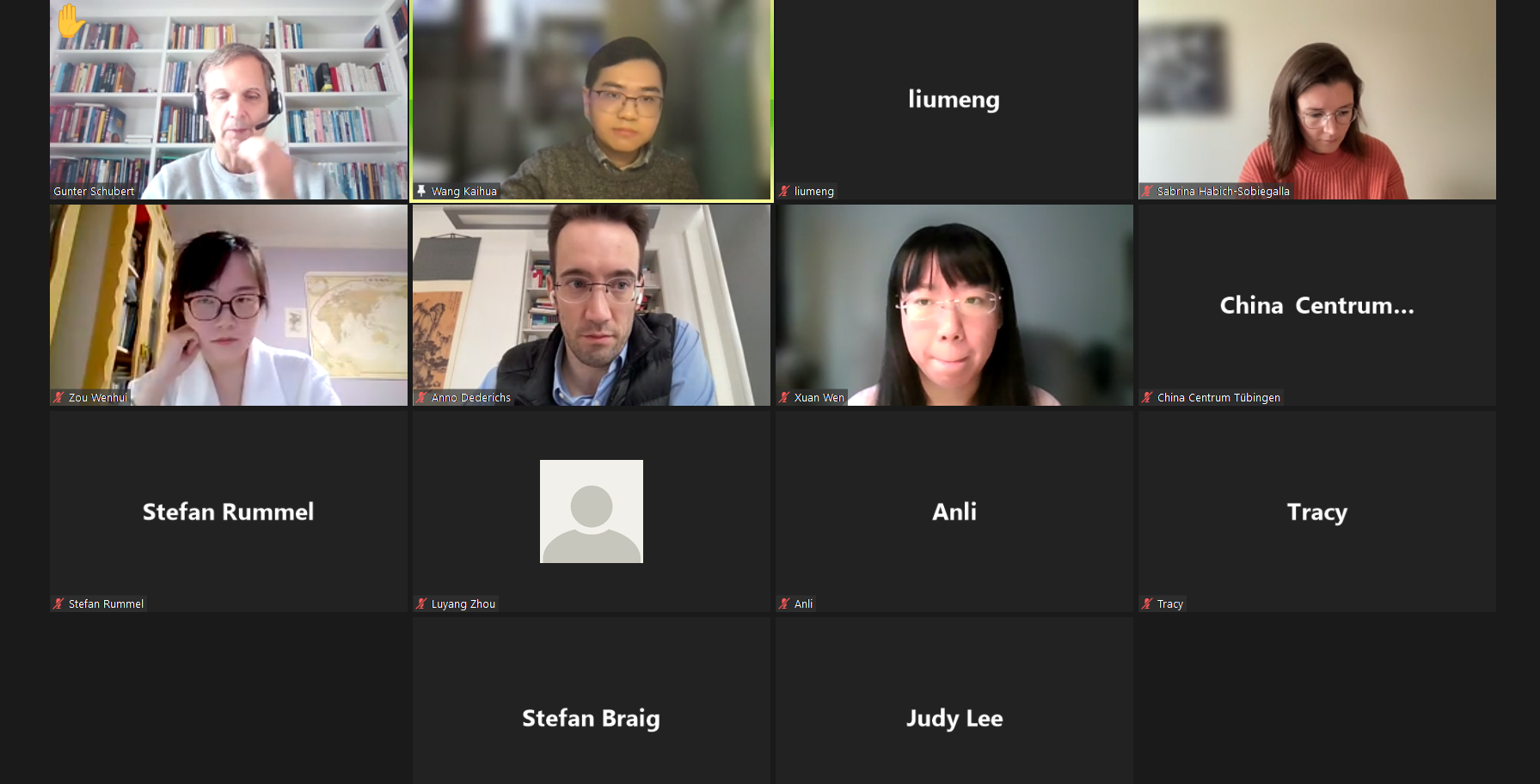
The second session of the Triple Alliance Young Scholars Workshop co-launched by Peking University (PKU), the University of Tübingen (UT) and Freie Universität Berlin (FUB) was held on November 11, 2022.
The presentation was given by Wang Kaihua, a PhD student at PKU’s Institute of Area Studies, on the subject of “The Organizational Mechanism of Jas Otan and its Caucus Relations with Nur Otan in Kazakhstan.”
According to Wang Kaihua, Kazakhstan’s youth are actively involved in Jas Otan, the country’s largest youth organization and the youth wing of the ruling Nur Otan Party. His research intends to examine the organizational structure of Jas Otan, investigate the caucus relationships between Jas Otan and its parent party, and analyze the similarities and differences between Jas Otan and the Soviet Komsomol.
According to Wang Kaihua’s research, Jas Otan has put in place a rigid bureaucratic framework that extends all the way down to the local level. Additionally, he analyzed the caucus relationships between Jas Otan and Nur Otan using the neopatrimonialism in Central Asian politics created by Rico Isaacs. He discovered that Nur Otan mostly uses caucus employee appointment and promotion mechanisms to control and manage Jas Otan. Young members of Nur Otan are more likely to be nominated by Nur Otan for the chairs of Jas Otan if they are devoted to Kazakhstan’s president and their superiors. Jas Otan is actually Nur Otan’s “youth reserve” for recruiting members and developing cadres based on informal individualism. Regarding the similarities and contrasts between Jas Otan and the Soviet Komsomol, Wang Kaihua thought it was impossible to compare Jas Otan to just a modern-day Komsomol in Kazakhstan. He said that while Jas Otan shares some organizational and caucus-related traits with the Soviet Komsomol, there are considerable distinctions between the two in terms of ideology and organizational functions.
Finally, he pointed out that Jas Otan had no part to play in stopping the national youth revolt that broke out in Kazakhstan at the start of 2022. He thought that Jas Otan’s shortcomings stemmed from its own uneven position, which was more defined by a political role than by a sufficient social role. After the presentation, Wang Kaihua answered the questions from the audience.


